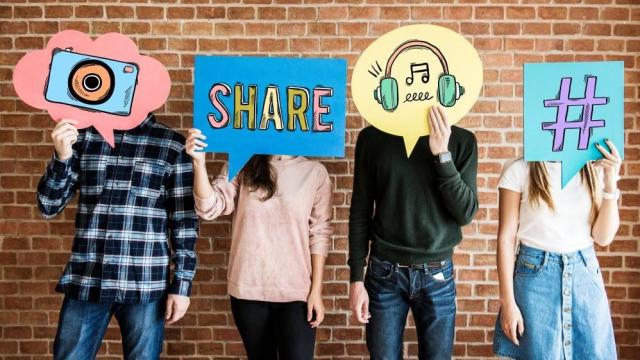A new Gallup survey found more than half of teenagers in the U.S. spend an average of 4.8 hours on social media each day. The responses came from 1,591 people ages 13-19 years old, and the survey’s findings show that as teens got older, they stayed on social media even longer.
Gallup also surveyed the children’s parents, asking about their parenting practices, parent-child relationships, and youth activities, among other things. The results looked at the data from 6,643 parents and found that social media usage was most prevalent among girls, noting that 55% spent an average of 5.3 hours online. Meanwhile, 48% of teenage boys were shown to spend 4.4 hours on social media, with the usage peaking for both genders at 17 years old.
The poll looked at social media usage across YouTube, TikTok, Instagram, Facebook, X – formerly called Twitter – and WhatsApp. Gallup found that out of all platforms, teens spend minimal time on WhatsApp, X, and Facebook in favour of YouTube (1.9 hours), TikTok (1.5 hours), and Instagram (.9 hours).
Gallup questions whether social media addiction is a contributing factor to the number of hours teens spend online every day saying, “Studies have pointed out how technology companies manipulate users into spending more time on the apps through their designs.” The report references a 2022 article published in the journal American Economic Review that says 31% of young adults are affected by the way social media companies design the platforms which reportedly creates “self-control problems” and excessive screen time use.
“Social media platforms drive surges of dopamine to the brain to keep consumers coming back over and over again,” Dr. Nancy Deangelis, the director of behavioural health at Jefferson Health said in an article for the health system. “The shares, likes, and comments on these platforms trigger the brain’s reward centre, resulting in a high similar to the one people feel when gambling or using drugs.”
Teenagers are more susceptible to these triggers, Deangelis says, because they are accessing social media during their second-largest period of brain development.
“The overuse of social media can actually rewire a young child or teen’s brain to constantly seek out immediate gratification, leading to obsessive, compulsive, and addictive behaviours,” DeAngelis said.
The addictive nature of social media can worsen mental health disorders, she warns, including symptoms of anxiety, depression, ADHD, body dysmorphia, and others.
The Addiction Center, owned by Recovery Worldwide, identifies youth who overuse social media as having a social media addiction, saying they fall into the category if they spend a lot of time planning to use social media or thinking about online platforms, use it to forget their problems, and if they find it has a negative impact on their job or studies.
The centre said that 27% of teens who have mental health issues were found to spend three hours or more on social media and reported that adolescents who excessively use social media were found to have “severely stunted social interaction skills.”
Earlier this year, the U.S. Surgeon General and the American Psychological Association issued health advisories regarding the potential harm social media has on youth, noting the effect it has on brain development but said more research is needed to see the overall impact social media has on teens. However, “there is growing evidence that social media use is associated with harm to young people’s mental health,” U.S. Surgeon General Dr. Vivek Murthy said in a U.S. Department of Health and Human Services news release in May.
“Children are exposed to harmful content on social media, ranging from violent and sexual content to bullying and harassment,” he said. “And for too many children, social media use is compromising their sleep and valuable in-person time with family and friends. We are in the middle of a national youth mental health crisis, and I am concerned that social media is an important driver of that crisis – one that we must urgently address.”
